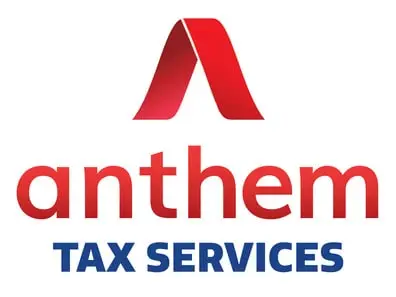
When you are going through tax issues, it’s natural to worry about whether you are going to lose your home. Your home is your biggest asset and it can be stressful to feel like you’re going to have to give it to the IRS.
The process of dealing with the IRS if you are unfamiliar can be rather difficult and complex, but if you have the right advice, it’s not so scary. In this article, we’re going to talk about whether the IRS can and will levy a primary residence if there is a debt owed by you. Let’s read on and take a look at what can happen and how you can stop it from happening to you.
Can they take your home?
The answer off the top? Yes, they can take your home. However, it’s important that you note that as a taxpayer you have many more options to resolve your tax debt than you think so the important thing is not to panic. If your tax returns show that you owe money to the IRS this means that you have a tax debt.
If you continue not paying your taxes, enforced collection is the usual step that the IRS will take. The IRS can take your personal property during enforced collections and they do this using a tax levy. This levy can allow the IRS to take your wages as well as money sitting in a bank account and your home. The thing to remember the most is that this is highly unlikely to happen. Homes are actually only ever seized in around 300/330,000,000 issues!
When you have a tax debt it’s not going to be the taxes that could lose your home, it’ll be the unpaid levies involved. They will take the money from your paycheck automatically or from your account, and this can cause missed repayments on your mortgage. That’s mostly where the issues lie.
The IRS would prefer a lien
Did you know that the IRS would much rather put a lien on your home instead of a levy? A tax lien is a claim put against the house by the IRS and it protects the interest in the property. This means that when it’s sold, the IRS will be paid the amount of the lien. A tax lien is much easier to use to recover unpaid taxes from the sale of a house.
The tax debt is usually paid when a house is sold, but it’s not the only way that a tax lien can be removed. The IRS has a process and it enables taxpayers to make this particular request. The IRS does, however, have to make their lien secondary to a newer, refinanced mortgage.
How are IRS tax levies used?
Tax levies are used to garnish wages and other personal property not protected by the Internal Revenue Code (IRC) § 6334. The only protected assets are child support and unemployment benefits among others. Liquid assets are usually seized first and your home would be at the bottom of the list.
There are certain requirements that must be met before the IRS can seize your home and these include:
- You have to owe more than $5,000 in tax debt
- There has to be a signed order from a federal court judge – or a magistrate
Even with these two met requirements, if only one spouse owes the IRS, the other can stop the seizure. If the IRS moves forward to size the home, the notice has to be issued and posted at the front of the home. Usually, you’ll find these notices on the front door of the house.
What happens after a home seizure?
After your house has been seized, your home will be auctioned by the IRS. It’ll be sold for fair market value and the auction will be posted on a bulletin board at the local IRS office or even the nearest federal courthouse. Even when it’s sold, it doesn’t mean that you have to move out right away or anything. There is time to plan the next steps and you even have the right to buy your home back. This is known as the right of redemption.
Can you stop it from happening?
As a taxpayer, you have the rights of collection due process. These are rights that require the IRS to follow a certain procedure. There will be a hearing and it’s here that you can try to convince revenue officers that the house wouldn’t cover the mortgage or the cost of the sale.
When you are going through tax issues, it’s natural to worry about whether you are going to lose your home. Your home is your biggest asset and it can be stressful to feel like you’re going to have to give it to the IRS.
The process of dealing with the IRS if you are unfamiliar can be rather difficult and complex, but if you have the right advice, it’s not so scary. In this article, we’re going to talk about whether the IRS can and will levy a primary residence if there is a debt owed by you. Let’s read on and take a look at what can happen and how you can stop it from happening to you.
Can they take your home?
The answer off the top? Yes, they can take your home. However, it’s important that you note that as a taxpayer you have many more options to resolve your tax debt than you think so the important thing is not to panic. If your tax returns show that you owe money to the IRS this means that you have a tax debt.
If you continue not paying your taxes, enforced collection is the usual step that the IRS will take. The IRS can take your personal property during enforced collections and they do this using a tax levy. This levy can allow the IRS to take your wages as well as money sitting in a bank account and your home. The thing to remember the most is that this is highly unlikely to happen. Homes are actually only ever seized in around 300/330,000,000 issues!
When you have a tax debt it’s not going to be the taxes that could lose your home, it’ll be the unpaid levies involved. They will take the money from your paycheck automatically or from your account, and this can cause missed repayments on your mortgage. That’s mostly where the issues lie.
The IRS would prefer a lien
Did you know that the IRS would much rather put a lien on your home instead of a levy? A tax lien is a claim put against the house by the IRS and it protects the interest in the property. This means that when it’s sold, the IRS will be paid the amount of the lien. A tax lien is much easier to use to recover unpaid taxes from the sale of a house.
The tax debt is usually paid when a house is sold, but it’s not the only way that a tax lien can be removed. The IRS has a process and it enables taxpayers to make this particular request. The IRS does, however, have to make their lien secondary to a newer, refinanced mortgage.
How are IRS tax levies used?
Tax levies are used to garnish wages and other personal property not protected by the Internal Revenue Code (IRC) § 6334. The only protected assets are child support and unemployment benefits among others. Liquid assets are usually seized first and your home would be at the bottom of the list.
There are certain requirements that must be met before the IRS can seize your home and these include:
- You have to owe more than $5,000 in tax debt
- There has to be a signed order from a federal court judge – or a magistrate
Even with these two met requirements, if only one spouse owes the IRS, the other can stop the seizure. If the IRS moves forward to size the home, the notice has to be issued and posted at the front of the home. Usually, you’ll find these notices on the front door of the house.
What happens after a home seizure?
After your house has been seized, your home will be auctioned by the IRS. It’ll be sold for fair market value and the auction will be posted on a bulletin board at the local IRS office or even the nearest federal courthouse. Even when it’s sold, it doesn’t mean that you have to move out right away or anything. There is time to plan the next steps and you even have the right to buy your home back. This is known as the right of redemption.
Can you stop it from happening?
As a taxpayer, you have the rights of collection due process. These are rights that require the IRS to follow a certain procedure. There will be a hearing and it’s here that you can try to convince revenue officers that the house wouldn’t cover the mortgage or the cost of the sale.


